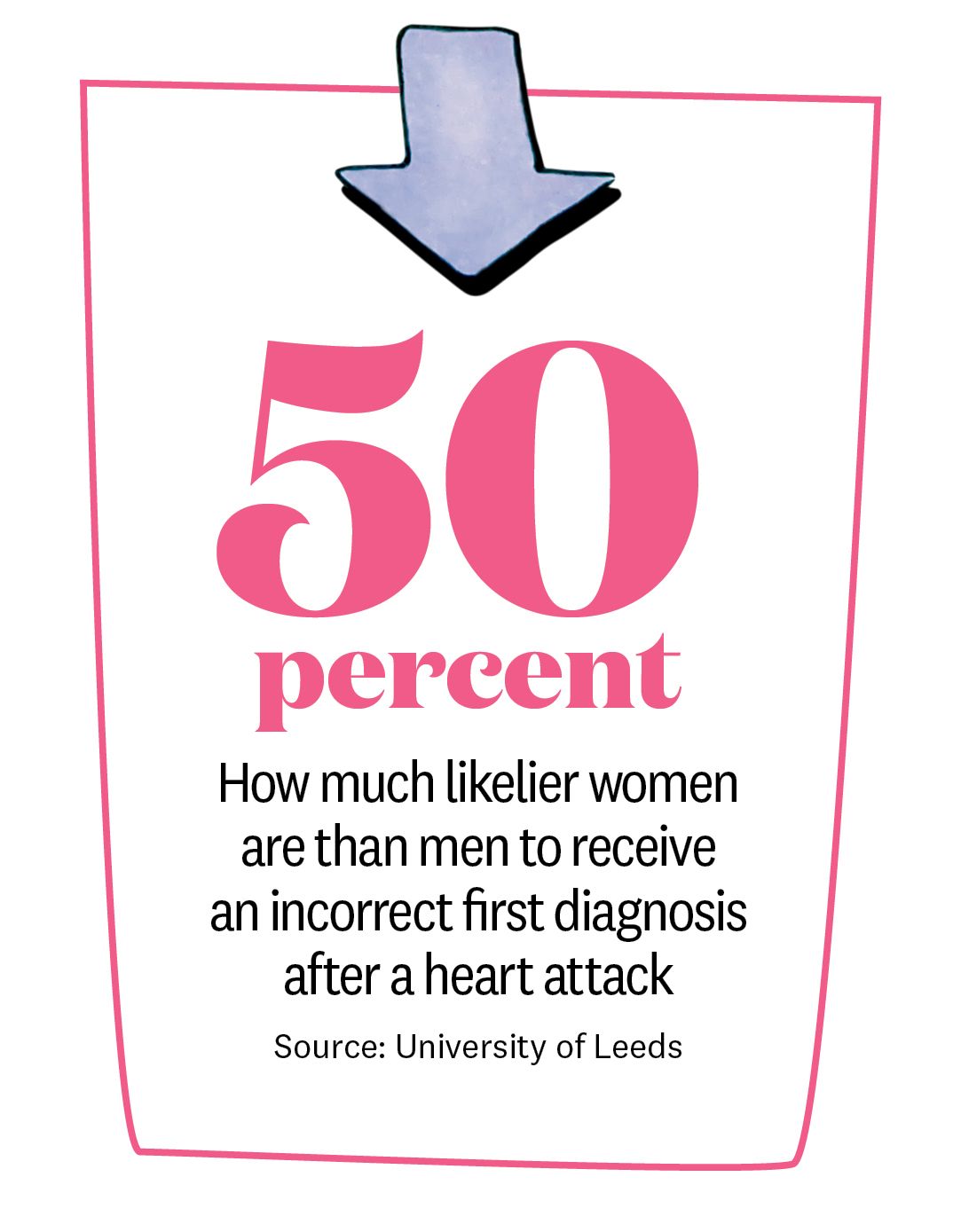Women are more likely than men to have their symptoms dismissed or downplayed by medical professionals. When they get a diagnosis, they often face stigma and judgment. In light of this, WH created the “Owning It” package—which spotlights various women with complicated and often difficult-to-diagnose conditions who decided to take a stand for their health. Our hope is that their stories help empower women everywhere to advocate for themselves and get the care and attention they deserve.

Doctors misdiagnosed me twice before figuring out I had small-cell lung cancer. I finally got an X-ray after I went to the ER for coughing and stabbing chest pain, and they discovered a tumor the size of a cantaloupe covering three-fourths of my lung. It was 2006, and I was 28 years old. I was also a nonsmoker—something I tell people along with my diagnosis, because I know they’re going to ask.

When my oncologist first told me I had small-cell lung cancer, I looked it up and learned the five-year survival rate was 7 percent. I had to take time off from my job as a special-education teacher during my treatment because of the high levels of chemo and chest radiation I was receiving, as well as the resulting fatigue I had to deal with. I had nothing to do during chemo and radiation, so I sent messages to legislators, asking for research funding. I went to a lung cancer research summit in 2008 and started networking and speaking on panels.
At first, I did all of this because I was mad. I wanted others to know that young people who are not smokers can be diagnosed with lung cancer and deserve research to help improve the outlook. Then, when I learned that cancer is deadlier for African Americans, I was angry about that too. Overall, about 161 people out of 100,000 die of cancer each year. But for African Americans, that rate is 185.6, higher than for any other race.
A lot of the disparity has to do with health-care access, and I’ve recently started to talk about this more with people I know. Patients should be getting the same care wherever they go, whoever they are.
This article originally appeared in the March 2020 issue of Women’s Health.
Source: Read Full Article






